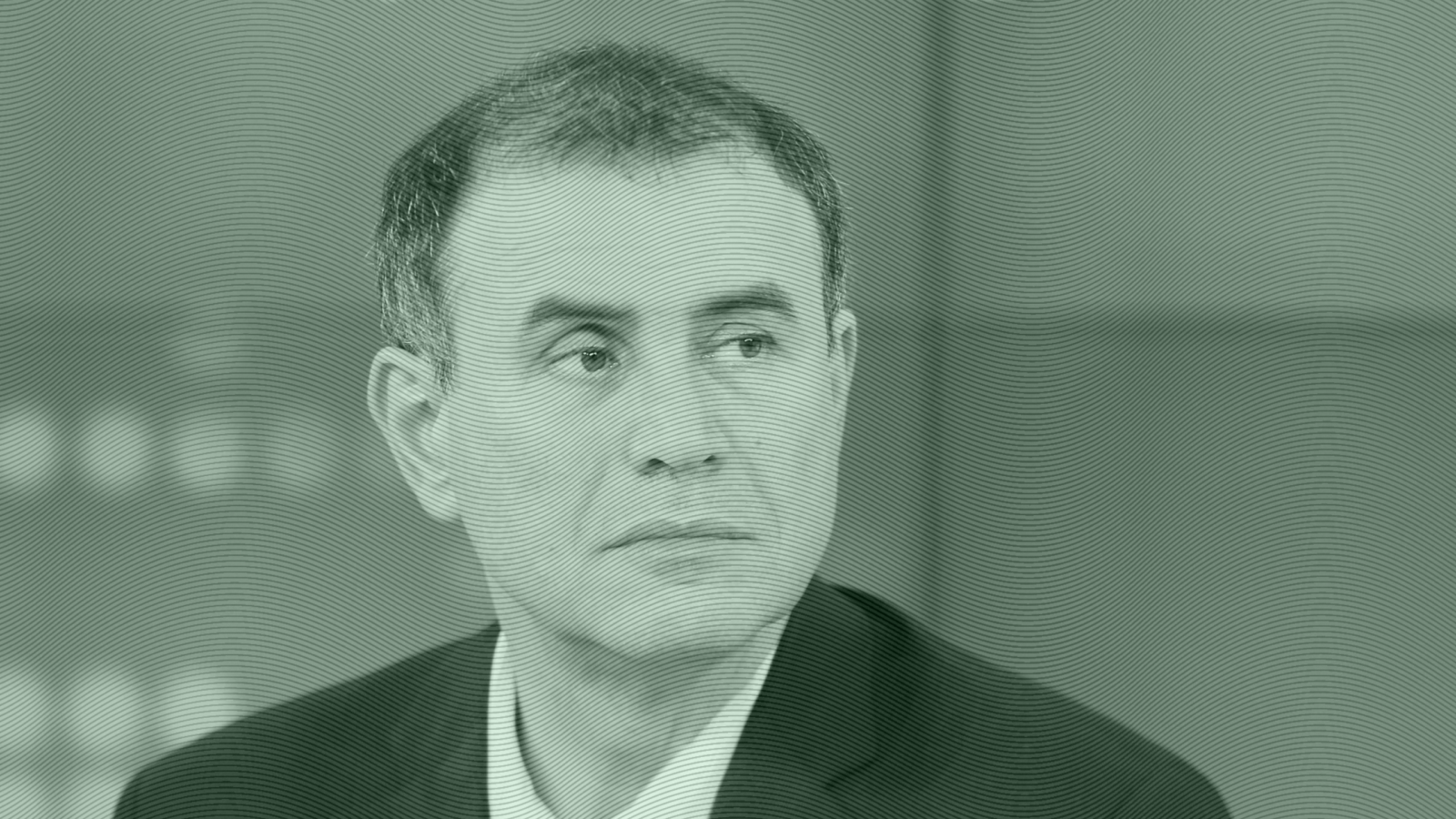Good morning.
That whole Great Wealth Transfer thing might be coming sooner than you think.
Most millennials and Gen Xers are actually more inclined to transfer their wealth to heirs while they’re still alive, according to a new Schwab survey. Overall, 36% of the 1,000 individuals surveyed said they’d rather give money to heirs now so they can help them become more financially stable and enjoy the gifts with their beneficiaries. Millennials and Gen Xers, meanwhile, were more likely than Boomers to prioritize lifetime giving — saying they’ll share more than twice as much of their wealth as the older group along the way.
Nearly half of Baby Boomers, on the other hand, said they preferred to hold onto their assets until they passed. What a bunch of Scrooges.
Dr. Doom’s 5 ‘Wars’ Facing the Global Economy

Dr. Doom’s at it again.
The notorious doomsayer Nouriel Roubini — who gained notoriety for calling the 2008 financial crisis — is warning investors about some of the greatest dangers facing the world today. The biggest issues for our Pale Blue Dot include out-of-control inflation, climate change and new pandemics. But the forecast wouldn’t be complete, of course, without the mention of an upcoming robot revolution. “We’re going to be in a world where inflation is going to be higher,” he said at a Bloomberg conference last week. “Therefore the traditional defensive asset doesn’t work.”
While higher prices for goods and services wreaked havoc on traditional investments in recent years — especially in 2022 when both fixed income and equities plummeted — it’s not all dire. There are potential investing strategies that can help, and Roubini’s team at Atlas Capital recently launched an exchange-traded fund to combat some of these potential problems. But if his prophecies do come true, the safer investments are probably a backyard bunker and canned soup.
Head For The Hills
The main issue is inflation. There are “five types of war” that our species will have to confront over the next two decades, Roubini said, all of which may be inflationary. It’s why he is predicting significantly higher inflation that could settle in at around 6%. He cited:
- Geopolitical war. With countries all over the world spending to fight hot wars and fund cold ones, the increased investment is going to strain fiscal budgets. “Geopolitical fragmentation is going to also imply less growth and more inflation,” he said.
- Climate change. Changes to the climate imply higher prices for food and commodities, like energy, over time. Desertification, lack of water resources and the collapse of agriculture have already sent food prices soaring. “That was occurring even before the Russian invasion of Ukraine,” he said.
- New pandemics. Forget Covid-19; Roubini is expecting new global pandemics that could disrupt the global economy and add trillions of dollars of deficit spending.
- Robotic revolution. With the increasing use of robotics, people are going to lose jobs, potentially permanently, as major employment sectors disappear altogether. That means paying for a larger social safety net for the unemployed, he said.
- Social strife. Societal issues have led to populist movements all over the world, and governments may need to create monetary redistribution systems, or face a backlash.
“You’re in a totally different world where you have to think about a different defensive asset for the traditional long-duration treasuries,” he said.
Gloom-Tinted Glasses. Of course, Roubini admits these are only potential outcomes and there are ways to build portfolios to combat them. The main tenet is to protect against runaway inflation. To that end, Roubini launched the Atlas America Fund (USAF), which is marketed as an alternative to traditional fixed income, and invests in climate-change resilient REITs, inflation-protected US Treasuries, and more.
“As long as they take the scenario as a meaningful probability of materializing, you have to rethink your investment strategy,” he told the crowd. “I’m not wanting to be doomish or gloomish.”
Get Off the Treadmill & Into the Driver’s Seat
Building your advisory practice can feel like a treadmill — juggling client demands and growth is exhausting without the right structure, mindset, and systems.
Stephanie Bogan, after driving explosive growth for advisors at Genworth and United Capital, knows how to scale firms. With Michael Kitces as executive-in-residence for 2025, Limitless Coaching offers Lifestyle and Leaders Coaching Programs to help advisors achieve success faster than they thought possible:
- Escape the grind and optimize your firm for success.
- Define your ideal clients and deliver value with confidence.
- Drive growth efficiently without sacrificing your lifestyle.
Limitless Coaching gives you the strategies, systems, and shortcuts to build a wildly successful practice and enjoy the freedom that comes with it.
Why Wells Fargo Is Tapping Into Banking Customers

Would you like a brokerage account with that?
Wells Fargo is upping its cross-selling game and looking to tap into the assets held by its vast pool of affluent banking customers. By offering wealth management products — like brokerage or retirement accounts to banking clients with $250,000 or more in assets — the wirehouse is hoping it can squeeze a little more juice from its existing business lines. For the firm’s few thousand bank-based advisors, the plan is starting to gain traction, said Wells CFO Mike Santomassimo.
“We’ve got millions of existing customers in the branch system that don’t do much investments with us — or any at all,” he said at a conference last month. “We did a good job managing the banking side of it. We hadn’t focused as much on the investment side of it.”
Baby, Come Back
Wells Fargo Premier, an account that links banking, investing, and lending services, is a prime example of how the bank is trying to connect its assets to different sides of the house. Customers get certain discounts and perks for being part of the program, which was launched in 2022, including a waiver of annual fees in their Wells Fargo Advisors accounts, no ATM fees, and others, according to its website.
It’s a huge opportunity for firms, and one that could bring in billions of dollars in new revenue industry-wide, according to Matt Zampariolo, an analyst with Cerulli. “There are dormant dollars sitting in checking and savings accounts,” he said. The problem is that the number of bank-side customers that also use wealth management services has plummeted in recent years, according to a recent Cerulli report. The research found:
- The percentage of clients using only banking services increased to 56% this year.
- That’s compared to more than 70% of customers who used some combination of wealth management and traditional banking services in 2017.
Although the math can get fuzzy, Zampariolo said the benefits are projected to be massive. “While we can’t assign a specific total addressable market, it’s more like billions,” he said.
Sharing Is Caring. Cross selling has been a mainstay in the industry for decades, but the majority of major brokerages are simply missing the boat, according to the report. Instead, bankers should think about adding one-time referral bonuses and other non-monetary incentives, like employee of the month awards, to help spur new business. They help make sure bank branches are looking at the wealth and brokerage businesses as core offerings, Zampariolo said.
Apparently, Wells got the memo. “The good news is when you can do a good job on the investment side, they’ll bring in more banking too,” Santomassimo said.
Want to Attract Top Talent? Try These Comp Perks
How about two extra weeks of paid vacation time?
In a race to attract the best talent possible, advisory firms are offering extra perks like equity ownership, health and wellness programs, paid time off for volunteer work or charitable donation matches, and even free financial planning for employees. While three quarters of firms offered remote or hybrid options this year, some 68% of the best performing firms also offered nontraditional benefits, according to Schwab’s 2024 Compensation Report. It’s the latest tactic firms are rolling out to reel in the industry’s best talent.
“Non-traditional benefits can be a competitive advantage,” said Lisa Salvi, head of business consulting at Schwab Advisor Services. “Companies can foster employee engagement and ultimately position themselves as employers of choice in an increasingly competitive job market.”
Extra Upside
- What a Bear. Jamie Dimon sees a “hard landing” for the US economy.
- Dead Air: Texas advisor and radio host charged with obstructing a grand jury proceeding, lying to authorities, and falsifying documents.
- 500 Independent Advisors Reveal Their Success Strategies. Discover how top advisors are using cutting-edge tech, optimizing their time, and leveraging AI for growth. The insights you need to stay ahead are inside. Download the full survey to uncover the keys to a successful practice.*
* Partner
ICYMI
- Vanguard Plays Offense: The asset manager is ready to make a strong push into financial advising.
- A Little Goes a Long Way: Generating all your promotional content with AI can be dangerous and ineffective.
- Call in the Cavalry: The RIA industry will need more than 70,000 new staff over the next five years to keep up with client demand.
Advisor Upside is edited by Sean Allocca. You can find him on LinkedIn.
Advisor Upside is a publication of The Daily Upside. For any questions or comments, feel free to contact us at advisor@thedailyupside.com.

